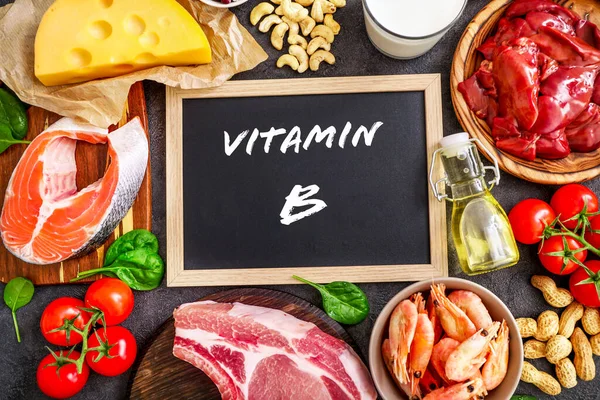Vitamin B complex includes some of the essential vitamins needed by the body to function properly. There are eight vitamins that make up the vitamin B complex: Thiamine (Vitamin B1), Riboflavin (Vitamin B2), Niacin (Vitamin B3), Pantothenic Acid (Vitamin B5), Pyridoxine (Vitamin B6), Biotin, Folic Acid, and the Cobalamins (Vitamin B12). These B vitamins are present in both plants and animal sources of food.
B vitamins have a lot of benefits for the body. Some of their benefits include
- Moving oxygen around the body
- Breaking down amino acids
- Aiding the growth and multiplication of cells
- Improving proper functions of the nerves
- Improving the function of the brain
And so much more benefits, including aiding the development of the brain of a foetus and reducing birth defects. B vitamins are very important.
One thing about B vitamins is that the body cannot store them for a very long time. This means you would have to maintain an intake by eating foods that are rich in B vitamins. In this article, we would be looking at some examples of Nigerian foods that are rich in vitamin B.
1. Leafy Green Vegetables
You can never go wrong with including vegetables in your food. Vegetables are rich in a range of nutrients, including B vitamins. What makes vegetables great is that there are so many of them and you can use them in many ways when cooking. Examples of vegetables include spinach, bitter leaf, Efirin (scent leaf), Ugwu (pumpkin leaf), Afang leaves, and more. These are the kinds of leaves you usually use in cooking soups and other dishes.
2. Eggs
As small as eggs are, they are packed with loads of nutrients that make them something like a superfood. Simply having one or two eggs a day would supply your body with most of the nutrients it needs, including B vitamins. Eggs could contain as many as six types of B vitamins. You can either boil or fry the egg to enjoy it.
3. Legumes
This includes beans, peas, such as black-eyed beans, and green peas, lentils, and so on. Legumes are primarily noted for their protein content, but they are also rich in a range of nutrients, including iron, magnesium, and B vitamins.
4. Animal Sources
There are several animal sources which you can get B vitamins from, including beef (cow meat), pork (pig meat), chicken and turkey. The B vitamins contained in these kinds of meats are higher than you will find in some other sources, like plants. For example, 100 grams of beef could contain as much as a third of your Recommended Daily Intake (RDI) of some of these vitamins. Besides B vitamins, these meat sources are also rich in other kinds of nutrients.
5. Fruits
You can also try fruits to supply you with B vitamins. Fruits like orange, lemon, banana, and avocado, are very rich in different types of B vitamins. There are also many other fruits in Nigeria that are rich in vitamin B such as garden eggs, Nigerian pear, soursop, and African star apple.
6. Whole Grains
If you are still thinking of a reason to switch to whole grains, then maybe the fact that they contain B vitamins would help you make the decision. Whole grains are considered healthier than regular grains as they contain more nutrients, including B vitamins. Examples of whole grain foods in Nigeria that contain B vitamins include brown rice, oats, acha (fonio) and millet.
7. Dairy Foods
Milk and dairy products are a good dietary source of water-soluble B vitamins, especially vitamins B2 (riboflavin), B5 (pantothenic acid), and B12 (cobalamin). Studies show that dairy products supplied a significant amount of the riboflavin in people’s diets. Common dairy foods in Nigeria that contain B vitamins are fura da nono, Greek yogurt, parfait, cheese, and butter.
YOU SHOULD ALSO READ:
- 10 Healthy Nigerian Foods Rich in Vitamin K
- 11 Nigerian Foods Rich In Vitamin B12
- 7 Healthy Vitamin D Foods In Nigeria
- 10 Nigerian Foods Rich In Vitamin C
- 13 Nigerian Foods That Are Rich In Vitamin E
- 10 Nigerian Foods Rich In Omega-3 Fatty Acids
- 7 Healthy Iodine-rich Foods In Nigeria
Collins Nwokolo is a human physiologist, writer and health enthusiast. He loves writing helpful articles on health and fitness, which he enjoys sharing with everyone.






